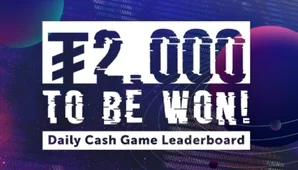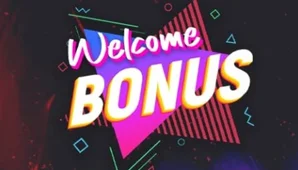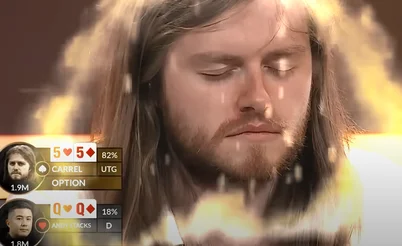This might be the absolute worst poker hand I've ever seen on televised poker that's above 100K USD.
It might be number one, and don't get me wrong, I've punted in my life. I've made some ridiculous punts. I'm not one to point fingers and say, "You suck because you played one hand bad," but this might be the absolute worst I've ever seen. Let's get into it.
Preflop Action
So we're playing at The Lodge and we see a raise from the hijack with . Completely normal especially if you're playing in a loosey goosey game but anyway even if you're not. – if you fold in that in a live cash game – click off this video. I don't want any of any of your energy or nitty energy in my life.
On the Button, Dylan calls . You can 3-bet this given that they're 250 big blinds deep. You can call it as well, especially if the big blind is a little bit of a weaker player and it folds the big blind and we see a weaker player in the big blind. Now Taras has and of course, you've just got to see a flop. I know it looks funny when you 3-bet and take it down and go, "He he! 69!" You might do it against your friends for like $6 each, but when you're playing for enough money where you can literally resurrect a village in Kenya, I don't know. I'm not one to point fingers. Maybe you should be a little bit more respectful of the money, but anyway, he decides to 3-bet it up and it's just not a good 3-bet.

He's like a billion big blinds deep. So, he's 500 big blinds deep with the lowjack and 1,000-plus big blinds deep with the button. If you're going to choose a 3-bet hand you want something that can just cooler other people. You're out of position against two people think about hands that can hit the nuts even something like suited you can still hit the nut straight and every now and again you hit a straight flush you know there's just a lot of stuff that you can do.
suited you got to get a ridiculously specific flop you got to get a flop for you to hit the nuts and it just doesn't happen very often. So, you shouldn't 3-bet this. You have to call it, but he does decide to 3-bet. If you are going to 3-bet you have to go really big because everybody's pretty deep. You really have to charge people a lot of money there. There are some nuances to sizes that you can choose when you're deep stack. Sometimes, the deeper you the smaller you go, and sometimes the deeper the bigger you go. In this exact spot, you do have to go pretty big if you are going to 3-bet because you just need some fold equity – especially if you're going to choose a trashy 3-bet hand like .
He decides to go to $2,000. I wouldn't be surprised if both players are just going to call their entire range or 4-bet some of their range as well and he has zero fold equity at this size.
He just bloated the pot with Nine Six high.
The Flop
The flop is and it doesn't get much better than this when you've 3-bet .
Unfortunately, our opponent Dylan has now flopped trips. Little does Taras know, he has to continuation bet here. It's a dry board. We have the over pair advantage, and given that he's 3-bet this, I'm sure he can have some like suited and maybe suited in his range as well. He can have , but just the over pair advantage, in general, means that you're going to have a range advantage. It means that you can just blast these kind of spots pretty willy-nilly.

So he bets $2,000. I actually like this sizing. The reason I like the sizing is because we have (and this is an exploitative thing which I'm sure he's not thinking about) a hand that's probably going to want to double barrel. We have a board that we're going to want to double barrel on and so the smaller that we go on the flop, the wider our opponent's range will be when we barrel the turn, meaning the more fold equity we get.
I'll slow that down.
If we go small on the flop, people will call more hands on the flop, meaning that when we then bet the turn to bluff the turn, they're going to have a wider range which includes a lot of weaker hands that are then going to fold. This is a kind of concept that comes up a lot in exploitative poker.
So he bets $2,000 and we're going to see how Yoochan is going to be playing. Yoochan intelligently gets out of the way he doesn't beat many of the bluffs and even if he does he's still probably going to lose the pot. Dylan's behind him to act.
Dylan now has a decision. Does he want to slow play or does he want to raise?
Here's how you make this decision:
- If your opponent is tight and stationy, meaning he's going to call a lot of hands, raise it up and try and get the billion chips in the middle.
- If he's a loose and blasty player, call this hand because you're facing a situation where you have a pretty weak range it's very hard for you to have a very strong hand here. Also, if it's the blasty player, he's probably going to keep blasting.
Personally, I would raise it up here.
I think that even against these blasty players when you're this deep you just have to try and get as much money in as possible and it gives them a chance to 3-bet. If you make it like $5,000 here they might float, they might call, or they might even re-raise you thinking, "Oh, this guy might just be messing around. What can he have on this kind of board? I'm going to represent I got Aces." Whatever it is. So generally, you don't want to slow play against these types of players. But maybe, Dylan has been playing Taras for a long time and has a reason why he wants to slow play because that's exactly what he does.
(Editor note: Charlie has been spending a lot of his time on CoinPoker recently, mostly in high-stakes cash games. The Crypto Series of Online Poker (CSOP) is wrapping up soon, but you can still get 150% bonuses anytime, plus reload bonuses, and our exclusive weekly freerolls.)
The Turn
Now the on the turn Taras has to bet this. He's made one awful decision pre-flop, one good decision on the flop, and now it's time to really show the world what he's made of. You have to bet this you have to get him to fold his Ace highs, , and stuff like that. So, you picked up a gutshot and you can still have . Obviously, your opponent has a , but you don't know that. Very likely your opponent has a or your opponent has a pocket pair or your opponent has a float, so it's just the perfect card to be barreling on. Get your money in there Taras.

All right. He goes for the check and Dylan goes for the check behind.
You guys tell me what the hell's going on there. I mean, nobody wants to put money in the middle. I can't imagine this can be good. Dylan looks like he's a professional poker player, I don't know who he is, but I assume he's a professional poker player. Even if you think your opponent hasn't got very strong hands because he checked the turn, you still get value out of his Ace high by just going small and giving him a chance to raise.
No idea what's going on there, but he's saying, "Hey, I've got a weak hand! Please try and bluff me!" and maybe that's exactly what can happen (a little bit foreshadowing for the river).
The River
So now Taras sees the river . He's got Nine high. His opponent can easily have or Ace high. Do you want to bluff here? You tell me.

No, no. You don't want to bluff it because your line now no longer looks credible because you didn't bet the turn. All of your over pairs would bet the turn, so if you start blasting here, it just doesn't look like you can have anything. It's just like, what are you trying to represent? You got ? A maybe? Probably not and your opponent probably just has a . From your perspective, your opponent probably just has and Taras has got an aggressive image, so what are you going to do?
So he checks it over, uh, I think quite intelligently. So he's two for four at the moment, and Dylan decides to go for a pot-sized bet, PSB as we call it in short term in the poker player world. You can write that down if you want to learn the lingo of poker.

Here's my theory on the situation as we see Taras tanking and tanking, tanking and tanking and tanking and tanking and tanking.
My hypothesis, my theory, is that Taras doesn't understand that Dylan just bet the pot. We see Taras go all in for 10 times the pot size bet.
River Action Analysis
Let me just break this down for you.
A normal raise size here might be to like 35k or 40K. He's gone 10 times the pot size bet. Now the reason that this is bananas, as I'm sure many of you know (and it don't feel bad if you don't), the pot-sized bet is a polarizing bet. He's basically saying, "I've got a very good hand", and you look at this board, what is a very good hand on this board? What's the full house there? A usually. And I mean a should have bet the turn or raised the flop, so I would put my opponent never on a , but I put him on a when he bets pot. Maybe I put him on like a kind of merge.
There's this thing that's kind of like died out the lingo, but back in the day there was this thing that people called the range merge, and it's actually a legitimate way of playing poker. It's when you have like a medium-strength hand here like and you bet the pot saying, "Oh, I've got a polarized range. I've either got a boat or nothing," and then your opponent might call with something like Ace high. It's actually kind of a sick play. People don't tend to do that that much, but it's something to write down and have in your repertoire. You want to be the kind of player that has all of these kind of creative plays.
He goes all in for $100,000. He's lucky that he doesn't just get snap-called here by a because Dylan should have a . He's saying he's got a like his... and this is why I think it might categorically be the worst play I've seen on these streams. Taras is going all in against a man who's either bluffing, in which case if he's bluffing you can literally just min-raise him. If he somehow, somehow found a bluff in this situation, although it's like humongously difficult to have bluffs 'cause most of them bet the turn. If he somehow found a bluff you can just min-raise him and you get him to fold it. You don't need to go big. Or if he's got a value hand like and what he's saying he's got is, "Hey bro, I've got a Seven." Could even be suited, there's only one combination of that but it could be possible. Then you're going all in against something that's about to snap-call you.

Mathematically, to risk 10 times his bet, to risk 100K to win 20K, it has to work like every time. Like, it can't go wrong mathematically ever basically. So when you're using overbets, you have to be wary of this concept and it's called having your opponent have a capped range. That's generally when you overbet... and a capped range is when your opponent can't have amazing hands.
In this situation, he's done the absolute opposite and it's like it's very likely his opponent has the best hand possible like a . Basically, the nuts is a , the hand that will just snap-call you.
Dylan is basically saying, "Yo, I've got a Seven." Taras is like, "Oh, you've got an uncapped range, I'm all in." Dylan has played the weirdest trips I've ever seen in my life and Taras has somehow lucked his way into going all in against a guy that has a bluff catcher in this situation, which is crazy that he played his trips like this.
So now Taras is praying that Dylan doesn't piece this together. You have to now think another layer of why this might be not so good is that how are you going to say that you've got a ? You've 3-bet before the flop. Obviously, if he has , he can probably have . Bet the flop, we can still have a . Check the turn, we can still have a . Check the river, that's where I think I take umbrage with this.
Here's how you think about these heroic spots. It's like, how often would certain parts of his range take this line? You know, would he ever do this with ? No, never. So you take that out of his range 100%. Okay, well he's saying he's got a . How often would a even 3-bet pre-flop? How often would it bet the flop? How often would it check the turn? How often would it check-shove the river? Every single one of these nodes where it might deviate, especially pre-flop and especially on the river, then that's less likely or fewer combinations of hands that your opponent can have. You have to reduce this.
And uh, that's enough chitter chatter for me. This is a ridiculously tough spot. Dylan's unlucky that he doesn't have a in this spot. Let's see if he can sniff out exactly what's going on in Taras's beautiful mind.

I will say congratulations. That's just an impressive call. I don't know how big the money is for him. I don't know if he sold a ton of action or if he's just a complete rich, rich, rich guy, but either way, making this ridiculously big call, he had to do it based on reads. I don't think this is a thing that you want to do GTO. You'd have to like randomize some numbers and would probably have to fold most of the time. Because you can just have so much in your range. So, I think he did this purely based on reads and he made the correct reads and he got paid off $200k.
Damn. What would you do if you won a $200k pot? What would you do the next day or that night? Tell me in the comments. Join Elite University. See you next time, beautiful people. Peace.

















